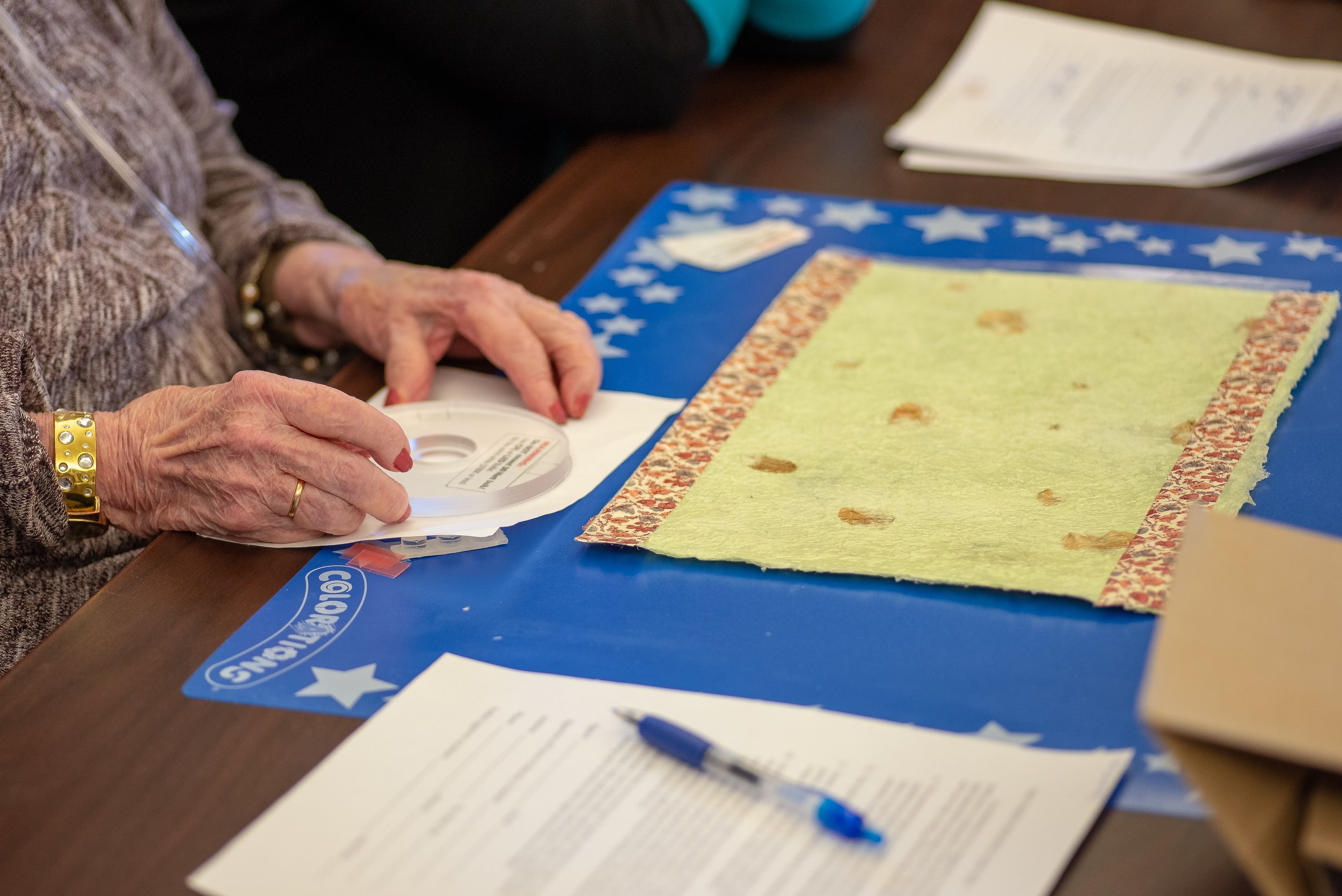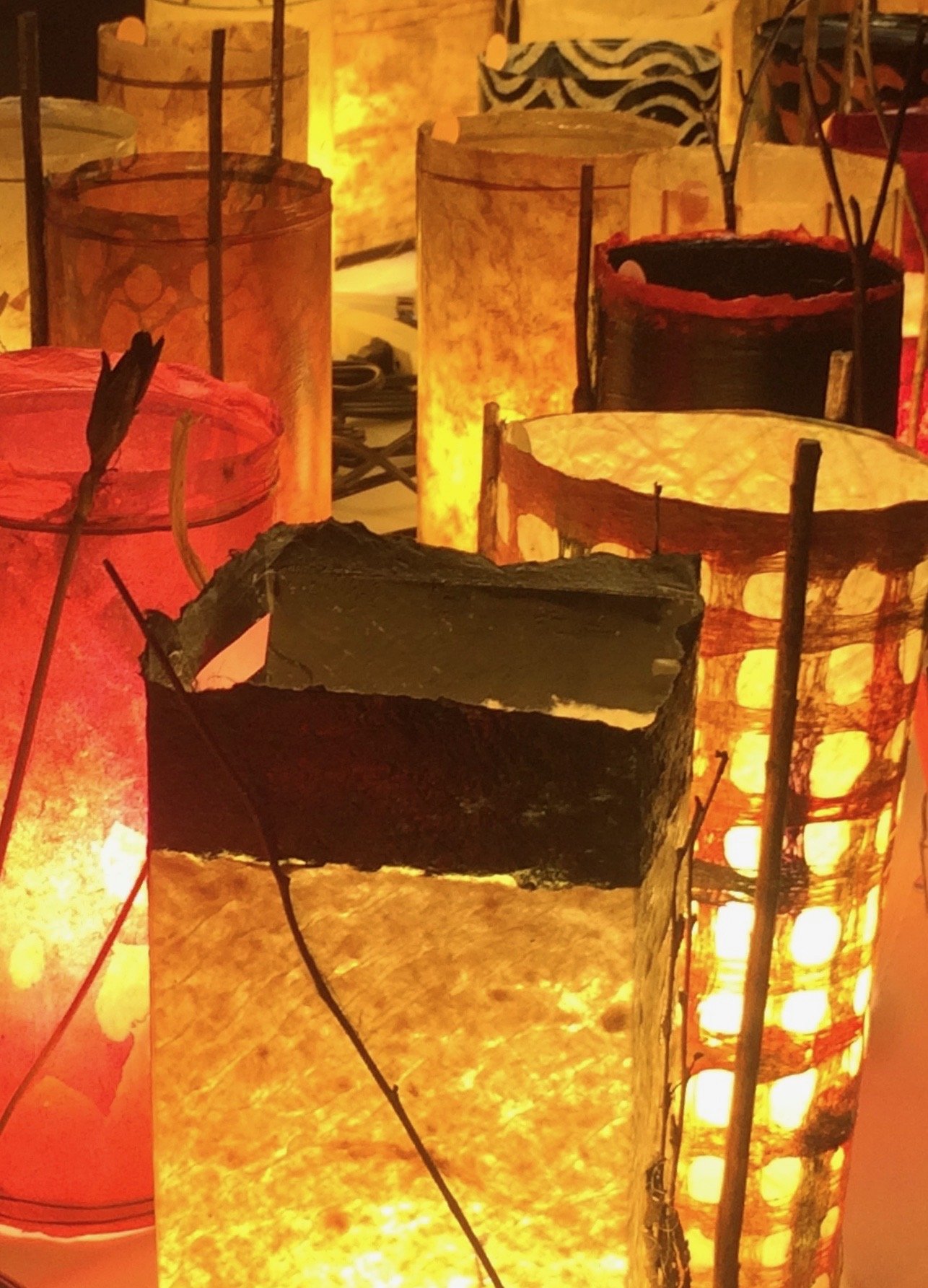Honoring the Light - Alzheimer's & Dementia
While memories fade, those with Alzheimer’s retain an appreciation for beauty and for the present moment. Those with Alzheimer’s can craft their own beautiful lamp which not only can provide a sense of accomplishment but also can serve as an anchoring beacon to help preserve their own identity and sense of place.
Developing and implementing this Alzheimer’s and Dementia initiative has been immensely gratifying. A huge amount of credit for developing this initiative belongs to Dawn Adler, MSW, who has been a long time leader in advocating for those with Alzheimer’s and other dementias. While working for Ovation Communities of Milwaukee, Dawn has developed meaningful, rewarding programs for not only those with Alzheimer’s and other dementias, but also their caregivers.
After participating in some of the early Legacy Lights workshops at Ovation Communities, Dawn realized that these workshops could easily be adapted for participants with memory issues. The resulting workshops have been tremendously impactful and transformative for participants, their caregivers, and their family members. Some participants have been joined by caregivers and/or family members while others have participated independently. Universally, participants felt honored while also feeling the pride of accomplishment.
Why?
Alzheimer’s and other dementias can present a challenging journey for those suffering from it as well as those drawn into it, such as loved ones and caregivers. This is an opportunity for honoring the lives of those who have Alzheimer’s and other dementias - who they are now, who they have been.
Some of the deepest and most profound sharing of wisdom has emerged from these workshops.
Testimonials
From a caregiver participant:
“When I signed up to accompany my mother to this workshop, I had modest expectations. I merely hoped that the program would offer my mom and I something different to experience together, beyond our usual lunch dates, afternoon visits and Sunday dinners.
What I ended up experiencing was something far more. By meeting, observing and listening to the other participants, mostly parent-child and husband-wife pairs but also some solo spouses or adult children of Alzheimer sufferers, I felt myself opening up and feeling emotions I normally keep tamped down. Because my relationship with my mom is so dear to me, I rarely if ever share, even with myself, how her condition makes me feel--the sadness, the tenderness, the missing, the gratitude for ‘those special moments’, the sense of never being able to do enough.
I heard and saw for myself that the other people in the room were going through a similar experience, with similar feelings and challenges, except some of their loved ones were at an even more advanced stage of the disease. I began to feel almost TOO MUCH. At one point, the caregivers, like me, were separated from our parents and spouses, and asked to share a reflection about our loved one. I tried, I really did, but couldn’t get the words out. The facilitator, who could not have been any kinder or more empathetic, simply handed me a box of Kleenex and let me pass my turn. The cry I allowed myself a minute later in the nearby restroom was something I can only describe as cathartic, as I felt a sense of self-compassion and understanding replace my usual self-judgment. Meanwhile, my exceedingly sweet and sociable mom was having an enjoyable experience of her own, talking to the other participants and spending special time with me.
My mom wanted me to keep the lamp, which I’ve placed on the dresser alongside my side of the bed. Whenever I look at it (which is daily), I think about the love I feel for my mom and always, always will.”





